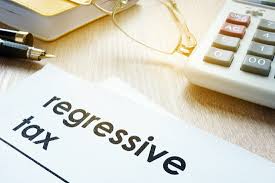Every individual, be it a business owner or employee, tends to protect their asset or wealth in one way or the other. To avoid anybody claiming it in the future. This article will give a clear understanding of what asset protection is, the Attorney, Specialist, and the plan involved in it.
Asset Protection
In simple terms, Asset protection refers to the use of techniques to safeguard one’s wealth. Asset protection is a financial planning aspect that protects one’s assets from creditor claims. Moreover, Individuals and businesses employ protection measures to prevent creditors’ access to certain valued assets while adhering to debtor-creditor legislation.
To Understand Asset Protection
Assets protection aid in the legal protection of assets by avoiding the illegal practices of concealment (hiding assets), contemptuous, false transfer (as defined in the 1984 Uniform Fraudulent Transfer Act), tax evasion, or bankruptcy fraud.
Moreover, experts say that effective assets protection should begin before a claim or responsibility happens. As it is frequently too late to institute any beneficial protection after the event. Assets protection trust account receivable finance, and family limited partnerships are some common asset protection strategies (FLP).
If a debtor has limited assets, bankrupt may be viewed as a better option than developing an assets protection plan. Nevertheless, if large assets are inclusive, proactive assets protection is usually suggested.
Certain assets, such as retirement plans, are immune from creditors under federal bankruptcy and ERISA. (the Employee Retirement Income Security Act of 1974) legislation in the United States. Furthermore, several states provide exemptions for a certain amount of home equity in a principal dwelling (homestead) as well as other personal property such as clothing.
Asset Protection Specialist
An asset protection specialist is in charge of assisting initiatives that prevent theft and loss of profit in retail businesses. Bear in mind that you will be asked to use loss prevention technology in this position. Experience with security cameras and RFID (Radio Frequency Identification) chips installed in high-value assets and products are the requirements. Day-to-day responsibilities include upgrading security procedures, staying current on security trends, working on the store floor, teaching store personnel in loss prevention, and monitoring store goods. Filing case reports, supplying evidence, and engaging with law enforcement, occasionally in court, are other required abilities.
Qualifications to Become an Asset Protection Specialist
Registration and training are the essential requirements for becoming an asset protection specialist. Moreover, you must be at least 18 years old, have a clean criminal record, and enroll with state authorities. You must also register to carry openly. Which is frequently part of your protective duties as a security guard. Most firms offer on-the-job training, in which an expert specialist teaches you the duties of the role. Furthermore, this work requires keen observation and decision-making abilities. As well as physical strength and the capacity to stay calm in high-pressure conditions. Specialists often start their careers in entry-level security positions and gradually build up via experience to more senior positions.
Example of a Job Description for an Asset Protection Specialist
You may get a decent idea of what employers are looking for when hiring for this position by reviewing our Assets Protection Specialist job description example. But keep in mind that every organization is different, and each will require distinct qualifications when hiring for an Assets Protection Specialist position.
Asset Protection Attorney
An attorney can explain asset protection thoroughly to have a better understanding.
Secondly, an asset protection attorney can help you navigate the difficult process of creating an asset protection plan to safeguard your fortune. Thankfully, you don’t have to go through it alone. Moreover, there are legal professionals on staff that can assist you in developing your strategy right now.
Additionally, this business creates assets protection programs for a wide range of clients in the United States and around the world. Our on-staff asset protection attorneys can assist you in determining the optimal assets protection strategy for you. They can explain how to use it and assist you in making the most of your strategy. Then, putting what you’ve learned into practice will help you safeguard yourself, your family, and your business.
Need for Attorney in Asset Protection
If you’ve done some study into developing your asset protection strategy. You may have come across a few do-it-yourself kits. These kits claim to be able to help you put up wills, trusts, and other legal documents. Furthermore, they indicate that you can do it without the assistance of a legal professional. These alternatives may appear appealing in place of the legal fees associated with hiring an attorney. However, you should seriously consider the consequences if you make a mistake. Probably you used the incorrect asset in the incorrect legal tool. You may then face a court battle and asset seizures, draining the same assets you intended to protect.
The American Bar Association warns anyone wishing to protect their assets that the laws can only be interpreted by a trained estate lawyer. Property rights, taxes, wills, probate, and trusts are all governed by legislation. Moreover, a DIY assets protection kit does not include someone to ensure that everything is completed correctly. A specialist can assist in ensuring that assets are correctly handled, assessing state legislation, and addressing critical personal requirements. If the sole reason you’re considering such kits is to save money on hourly legal expenses, come to your meeting ready.
What is Asset Plan Protection?
Basically, an asset protection plan employs legal ways to keep assets out of the reach of creditors. While avoiding the danger of perjury, fraud, or tax evasion. While anyone can use an asset protection plan, they are particularly beneficial for people with considerable assets and those who are likely to be the focus of litigation. For instance, in the following circumstances, an asset protection plan may be extremely beneficial:
- Those who work in a high-risk profession, such as doctors, attorneys, financial advisors, real estate developers, and homeowners;
- Those who have amassed or are about to amass a considerable amount of riches;
- Those whose home’s value has fallen below the mortgage payment
- Those that have a lot of credit card debt;
- Owners of family businesses who are concerned about the operation’s long-term future
- And finally, those who may face a future lawsuit or tax liability.
Of course, there are additional circumstances in which an asset protection plan may be beneficial. Below are some assets protection tools.
Common Asset-Protection Tools
Estate planning attorneys employ a variety of strategies to develop a thorough asset-protection plan. Among the more common tools are:
Insurance
Insurance is likely the most frequent asset-protection instrument. As the correct insurance products can give adequate compensation in the case of a claim. Business owners should consider life insurance, umbrella insurance, and business interruption insurance in addition to the house, auto, and professional insurance.
Asset re-titling
Changing the legal title of assets out of a business owner’s name typically keeps those assets out of the reach of creditors. However, it is critical to evaluate the impact of asset re-titling on the business owner’s estate plan, as well as the tax implications of such a transfer.
Retirement plans
Retirement plans are often beyond creditors’ reach. Understanding the limitations of this protection, on the other hand, is critical.
Use of business entities
The use of business entities can help to minimize or remove risk. Corporations, limited liability corporations, and limited liability partnerships, for example, provide significant protection. Moreover, Creating a distinct business entity for each purpose will provide the maximum protection for business owners with more complex operations.
One of the most important things to remember about asset protection plans is that it is often too late to start developing one once it is required. Furthermore, asset-protection principles are based on the assumption that no litigation or tax liability is already pending. If there is, then most asset-protection techniques may be illegal. As a result, starting the planning process early and well ahead of the requirement for protection is critical.
What Are Asset Protection and Security?
It is the application of physical controls to safeguard the location, the site, the facility, the structure, or other tangible assets. Application of physical security is the practice of employing many physical safeguards to stop unlawful access, injury, or property destruction.
What Are the Fundamental Methods of Asset Protection?
Insurance, statutory protection, and asset placement are the three fundamental methods of asset protection.
What Issues Does Asset Protection Cover?
Asset protection insurance is a separate insurance contract that, in the event that your car is stolen or written off in an accident, reimburses you for the difference between the amount you paid for it and its current value.
How Do You Begin Protecting Your Assets?
Registration and training are essential requirements for becoming an asset protection professional. A background check, proof of age, and registration with state authorities are all required. As part of your protection responsibilities as a security officer, you must register in order to open carry.
Which Trust Is More Effective at Protecting Assets?
Your assets are best protected from creditors and lawsuits by an irrevocable trust. An irrevocable trust’s assets are not regarded as personal property. This implies that they aren’t taken into account when the IRS evaluates your estate to see if taxes are required.
Conclusion
In summary, protecting your asset is all about doing the necessary things to ensure that your wealth is well protected.
Asset Protection FAQ’s
What is the best assert protection?
Trusts have gained a reputation for being the most effective asset protection tools known today. They have proven to be more effective than any other financial entity at protecting one’s assets from creditor claims, lawsuits, and just about any type of legal threat.
How can I protect my property assets?
- Transfer all assets in your name to protective entities.
- Pair asset protection with financial planning strategies, such as asset exemptions and insurance.
- Encumber your assets with liens.
- Separate business assets.
What is an example of protecting your assets?
Assets that are shielded from creditors by law are few: common examples include some home equity, certain retirement plans, and interests in LLCs and limited partnerships (and even these are not always unreachable). Assets that are almost always unreachable are those to which one does not hold legal title.
- Market Talent – Fintech & Banking Recruitment Agency
- PAYROLL LOAN: Definition &; Best Government Practices for any Business
- BUSINESS CREDIT SCORE: How to Check Your Business Credit Score
- PAYPAL SELLER PROTECTION: Detailed Guide to the PayPal Seller Protection Policy
- IRS Attorney: Salary, Jobs, Fees, Best Options & All You Need






